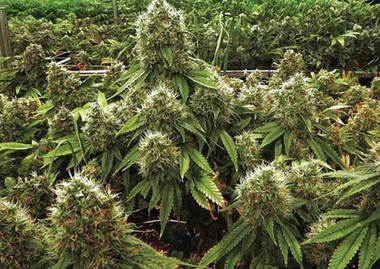Arkansas ballot features ‘grassroots’ medical marijuana, and more

by Sara Ritsch
Staff Writer
Arkansans supporting the legalization of medical marijuana have two questions on the November ballot that would lead to legalization in the state.
The initiated state statute Arkansas Medical Cannabis Act (AMCA) is on the November 8 ballot this year as Issue 7. The act would permit certain patients to grow their own marijuana for medical purposes, as long as they live more than 20 miles from the nearest dispensary, and create a payment system for low income patients.
The patients would be required to obtain an Arkansas Department of Health (ADH) identification card and a prescription from a licensed physician. The act would put the ADH in charge of implementing the program – but the ADH has chosen the side of the opposition.
Benefits of medical marijuana have been seen in patients who suffer from chronic or debilitating medical conditions, such as peripheral neuropathy, intractable pain, severe nausea, seizures, epilepsy, multiple sclerosis, and in patients who suffer from anxiety or post-traumatic stress disorder (PTSD). However, in order for research to advance, approval must be given by the Drug Enforcement Agency (DEA) and the Food and Drug Administration (FDA). Federal restrictions still apply.
When speaking with the ADH about their opposition to the AMCA, they said, “Our main position is that if it were voted into law this would be the only substance that would be voted to be a medicine by law. Typically, there’s a scientific medical process, and that’s how something becomes medicine. With this being voted to become a medicine, there is no controlling for dosage, potency, efficacy and safety.
“The way it’s written, there’s not really a way to determine dosage or if there were pesticides used during growth or anything like that. I want be clear, too, that our position is only for medical marijuana. The criminalization of marijuana is a separate, law enforcement and DEA issue.”
The other medical marijuana vote is on the ballot as Issue 6. The Arkansas Medical Marijuana Amendment (AMMA) of 2016 would amend the Arkansas Constitution to legalize medical marijuana, as put forth by Little Rock attorney David Couch.
Some people who support the use of medical marijuana say that this amendment would benefit big businesses, whereas Issue 7, a statute, would support ‘the little guy.’
This amendment “gives control to a limited number of high profit companies and doesn’t allow for things like personal plants, and the like,” said marijuana supporter Dane La Born. “In other words, it’s designed to put money in pockets, not help people.”
The proposed amendment itself would also set forth strict guidelines for the distribution and use of medical marijuana. The ballot title reads that the amendment would “make the medical use of marijuana legal under state law, but [acknowledge] that marijuana use, possession, and distribution for any purpose remain illegal under federal law.”
The ballot title for the AMMA continues, saying that in order to become a qualifying patient, a person must “submit to the state a written certification from a physician licensed in the state that he or she is suffering from a qualifying medical condition; establishing an initial list of qualifying medical conditions...”
The initiative would also direct the ADH to “establish rules related to the processing of applications for registry identification cards and the addition of qualifying medical conditions if such additions will enable patients to derive therapeutic benefit from the medical use of marijuana.”
The AMCA, if voted “yes”, would set a cap on the fees required to get dispensary and cultivation licenses andthe fees required for patient cards, whereas the AMMA on petition would set that cap but provide no limit on the cost of patient card fees.
The AMCA on ballot would give the ADH full authority; in contrast, the AMMA dictates that the ADH would set the rules for patient cards and medical conditions but that the Arkansas Alcoholic Beverage Control would establish the operating rules for dispensaries and cultivators.
The AMCA on ballot would put sales tax revenue back into the medical marijuana program, whereas the AMMA would divide up sales tax revenue between the program and programs of the state.
If both questions on the Nov. 8 ballot receive majority approval, the one that achieved the most “yes” votes would supersede the other.
The Gayly – September 20, 2016 @ 10:30 a.m.





